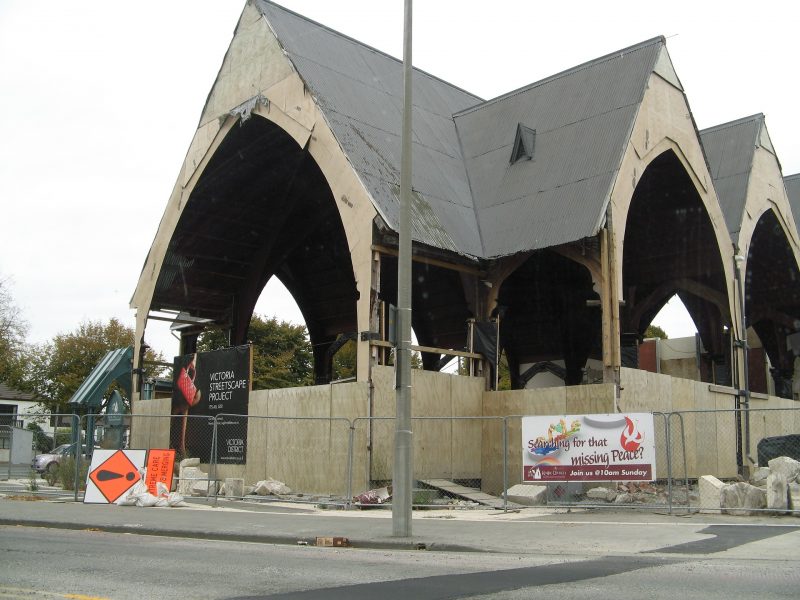
“To better the future we must disturb the present” Catherine Booth
Ulster born biblical scholar and historian J. Edwin Orr defined revival as: “The Spirit of God working through the Word of God, in the lives of the people of God.” Nehemiah chapter 8 is a great example of this.
“ …. Then all the people gathered as one person in the town square in front of the Water Gate and asked the scholar Ezra to bring the Book of The Revelation of Moses that God had commanded for Israel. So, Ezra the priest brought The Revelation to the congregation, which was made up of both men and women—everyone capable of understanding. It was the first day of the seventh month. He read it facing the town square at the Water Gate from early dawn until noon in the hearing of the men and women, all who could understand it. And all the people listened—they were all ears—to the Book of The Revelation. The scholar Ezra stood on a wooden platform constructed for the occasion…. Ezra opened the book. Every eye was on him (he was standing on the raised platform) and as he opened the book everyone stood. Then Ezra praised God, the great God, and all the people responded, “Oh Yes! Yes!” with hands raised high. And then they fell to their knees in worship of God, their faces to the ground.” Nehemiah 8:1-6 (MSG)
After 70 years of exile in Babylon the first group of Jews returned to Judah. Over the next 70 years further waves made the long, arduous, and extremely hazardous journey back home. They returned to a Jerusalem that was a defenceless and highly vulnerable city, the temple in ruins, and to be a tiny minority in an overwhelmingly pagan region. In short not a very auspicious or promising situation, much to dispirit and discourage these returning exiles. Yet in Ezra the priest/ scribe and Nehemiah the Governor, God had faithful servant leaders, prayer warriors, men of vision and great courage. Despite intense external and internal opposition, the temple was restored and in only 52 days Jerusalem’s walls rebuilt (an estimated twenty-seven miles in length) and its gates rehung!
Maybe after such herculean physical efforts under great threat, a sense of anti-climax might have been the natural experience. But read on in Nehemiah chapter 8 and you will see that a most unusual event took place that was to dramatically influence the spiritual life of God’s people – revival broke out at the Water Gate! Many commentators have noted that in every genuine revival two factors are always evident, namely a hunger for God’s Word and an enthusiastic response from God’s people. In this chapter (vv 1-3, 6) we read how all the people (this wasn’t an optional event) listened intently to Ezra read from God’s Word (for six hours from daybreak to noon) and they responded enthusiastically.
When the people understood what Ezra had read, they realised how miserably they and their ancestors had failed the Lord. So convicted of their personal sin and guilt they began to weep and mourn. Nevertheless, the people were given the reassuring words, “Do not grieve, for the joy of the Lord is your strength” (Ch. 8:10). Some three-and-a-half weeks later the people assembled again for a National Day of Repentance and Recommitment (Ch. 9). In chapter 10 the people confessed God’s control over every aspect of their lives – at home, at worship, on their farms, in trading or commerce, in social contacts and spiritual obligations. Jerusalem and the surrounding territory were revitalised through reforms that were the outworking of revival.
Whatever Revival you look at, faith is put into action. Reform is an integral part of the transformation, of the Kingdom of God being made real in the surrounding society and culture. The revivals of the 18th and 19th century brought about the abolition of slavery, prison reform, significant improvements to working conditions in factories and mines, expansion of education in schools, formation of many national Bible Societies and foreign missionary bodies.
The 1907 Korean Revival, like the 1859 Revival in Ireland and Britain or the 1904 Welsh Revival, had a significant impact upon the communities that churches were attempting to reach. As churches were revived, they were gripped by a burning passion to reach the lost in their community. They began to see drunkards, gamblers, adulterers, hardened criminals, the self-righteous…. transformed into new creatures in Christ.
But there is something particularly important to note in the last chapter (13) of Nehemiah – things unravel! For while Ezra and Nehemiah try their best, their political and social reforms don’t change the core issues in people’s hearts. Revival is fragile and frequently short lived – it cannot be passed from one generation to the next. The next generation must be led to experience God in a personal way themselves. Like Israel, we also need a wholistic transformation of our hearts if we are ever truly going to love and obey God.
Heavenly Father, forgive us for our arrogance and selfishness. Forgive us for our mindset shaped by misguided perceptions of our social and technological sophistication which blinds us to the divisions, exploitation, corruption, and instability which so pervades our land and indeed the world. Lord, we bring our nation and its people – wayward, confused, led astray, lost – before Your throne of grace and we plead for mercy. Revive Your church Lord and heal this land. Amen.